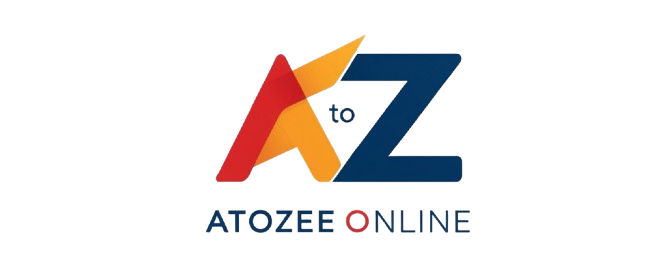Mortgage Rates UK

MORTGAGE RATES UK
Introduction:
In the vast landscape of financial decisions, understanding mortgage rates in the UK is crucial for anyone contemplating homeownership. Whether you’re a first-time buyer or considering refinancing, the dynamics of mortgage rates play a pivotal role in shaping your financial journey.
Factors Affecting Mortgage Rates:
- Economic Indicators:
Mortgage rates are intricately tied to the overall health of the economy. Key indicators, such as Gross Domestic Product (GDP) growth and employment rates, play a significant role. In times of economic prosperity, interest rates tend to rise, reflecting increased demand for loans. - Central Bank Policies:
Central banks, like the Bank of England, wield considerable influence over mortgage rates. By adjusting the base interest rate, central banks control the cost of borrowing. When the central bank raises rates, it becomes more expensive to borrow, impacting mortgage rates. Conversely, lowering the base rate can make borrowing more affordable, driving down mortgage rates. - Inflation Rates:
Inflation, the rate at which the general level of prices for goods and services rises, affects mortgage rates. Lenders anticipate future inflation when setting interest rates. Higher inflation expectations often result in higher mortgage rates to compensate lenders for the decrease in purchasing power over time. - Housing Market Trends:
The state of the housing market itself is a critical factor. Conversely, in a buyer’s market with lower demand, rates may be more competitive. Monitoring housing market trends helps borrowers understand the dynamics influencing mortgage rates.
Understanding these economic factors provides a solid foundation for predicting mortgage rate movements. As borrowers, being aware of these influences empowers you to make informed decisions about the timing of your mortgage application and the type of mortgage that best suits your financial goals.
Understanding Fixed vs. Variable Rates:
Fixed-Rate Mortgages;
What is it?
This means your monthly payments remain unchanged, providing predictability and protection against interest rate fluctuations.
Pros:
- Predictability:
Monthly payments stay the same, making budgeting easier. - Long-Term Stability:
Ideal for those who value long-term financial predictability. - Protection Against Rate Increases:
Shielded from market interest rate spikes.
Cons:
- Potentially Higher Initial Rates:
Fixed rates may be higher initially compared to variable rates. - Less Flexibility:
Limited to the agreed-upon rate, missing out on potential interest rate decreases.
Variable-Rate Mortgages;
What is it?
A variable-rate mortgage, also known as an adjustable-rate mortgage (ARM), comes with interest rates that can change periodically. These changes are often tied to a benchmark interest rate, such as the Bank of England base rate.
Pros:
- Lower Initial Rates:
Initial interest rates may be lower than fixed-rate options. - Potential for Decreases:
Can benefit from lower rates if the market interest rates decrease. - Flexibility:
Some variability in payments allows for potential savings.
Cons:
- Uncertainty:
Monthly payments can fluctuate, posing budgeting challenges. - Risk of Rate Increases:
Vulnerable to rising interest rates, leading to higher monthly payments. - Interest Rate Caps:
Some variable-rate mortgages have caps limiting how much rates can increase, providing a degree of protection.
Making the Choice:
- The decision between fixed and variable rates depends on your risk tolerance, financial goals, and market conditions. If you prioritize stability and foresee staying in your home for an extended period, a fixed-rate mortgage might be preferable. On the other hand, if you’re comfortable with some uncertainty and anticipate potential market rate decreases, a variable-rate mortgage could be advantageous.
- Remember, both options have their merits, and the “best” choice varies based on individual circumstances. Consider consulting with a financial advisor to align your mortgage choice with your unique financial situation and future plans.
Impact of Credit Scores on Mortgage Rates:
- Excellent Credit (750 and above):
Borrowers wielding excellent credit scores are the darlings of lenders. With a score of 750 or higher, individuals are deemed low-risk borrowers. Consequently, they reap the rewards of the lowest mortgage rates available. Lenders, viewing them as reliable, extend the most favorable loan terms. - Good Credit (700 – 749):
Those with good credit still enjoy favorable terms, though slightly higher than those with excellent credit. A score within the range of 700 to 749 positions borrowers well, providing access to a broad spectrum of mortgage products. - Fair Credit (650 – 699):
Fair credit doesn’t close the door to mortgage opportunities, but it comes with adjustments. Borrowers in this range might encounter slightly higher interest rates, reflecting the moderate level of risk perceived by lenders. - Poor Credit (below 650):
Securing a mortgage with a poor credit score poses challenges. Those falling below 650 are considered high-risk borrowers. Consequently, lenders may offer less favorable terms, including higher interest rates and more stringent loan conditions.

Tips for Improving Credit Scores:
- Regular Credit Report Checks:
Routinely review your credit report for inaccuracies. Swiftly address any discrepancies to ensure an accurate representation of your credit history. - Timely Bill Payments:
The punctuality of payments significantly impacts credit scores. - Debt Reduction Strategies:
Prioritize reducing outstanding debts. A lower debt-to-income ratio positively influences creditworthiness. - Caution with New Credit Accounts:
Limit opening new credit accounts, especially in a short timeframe. - Diversify Credit Types:
A mix of credit types, such as credit cards and installment loans, can contribute positively to your credit score.
Understanding the symbiotic relationship between credit scores and mortgage rates is empowering. Taking proactive measures to bolster your creditworthiness not only enhances your chances of mortgage approval but positions you to secure more favorable interest rates. This financial prudence can translate into substantial savings over the life of your mortgage, making the journey to homeownership a more economically sound venture.
Government Schemes and Mortgage Rates:
- Interest Rate Subsidies:
Some government schemes offer interest rate subsidies, reducing the overall cost of borrowing for eligible individuals. This subsidy acts as a financial incentive for lenders to provide more favorable mortgage rates. - Down Payment Assistance:
Certain government programs assist homebuyers by providing down payment assistance. This assistance can potentially lower the loan-to-value ratio, positively impacting the terms and interest rates offered by lenders. - Guarantees and Insurance:
Government-backed mortgage insurance or guarantees mitigate the risk for lenders. This added security often translates into lower interest rates for borrowers, particularly those with smaller down payments or less-than-perfect credit. - Regulatory Changes:
Governments may implement regulatory changes to encourage lending institutions to offer more affordable mortgage rates. These changes can include adjustments to lending criteria or incentives for lenders participating in government-backed programs.
Navigating Government Schemes for Optimal Mortgage Rates:
- Research Available Schemes:
Stay informed about the various government schemes available. Different programs cater to different demographics and circumstances, so understanding the options is key. - Eligibility Criteria:
Be aware of the eligibility criteria for each scheme. Meeting the requirements ensures you can take full advantage of the benefits, including potentially favorable mortgage rates. - Consult with Lenders:
Engage with lenders who participate in government-backed programs. These lenders can provide insights into the specific mortgage rates and terms associated with these schemes. - Long-Term Implications:
Consider the long-term implications of government schemes on your mortgage. Some programs may offer initial benefits that evolve over time, influencing your overall cost of homeownership.
Government schemes can be instrumental in making homeownership more achievable for a broader segment of the population. By aligning your goals with the available initiatives, you not only enhance your prospects of securing a mortgage but also position yourself for more favorable terms and rates, paving the way for a financially sound homeownership journey.
Market Trends and Mortgage Rates:
- Economic Conditions:
Economic indicators, such as GDP growth, unemployment rates, and inflation, shape market trends. During periods of economic growth, interest rates may rise as demand for borrowing increases. Conversely, economic downturns can lead to lower interest rates to stimulate borrowing and spending. - Central Bank Policies:
The decisions and policies of the central bank, such as the Bank of England, have a direct impact on mortgage rates. Changes in the base interest rate set by the central bank can trigger adjustments in the rates offered by lenders. - Housing Market Activity:
The level of activity in the housing market itself plays a significant role. High demand for homes may result in higher mortgage rates, while a more subdued market may lead to increased competition among lenders, potentially lowering rates. - Global Economic Events:
Events on the global stage, such as geopolitical tensions or economic shifts in major economies, can influence market trends and subsequently impact mortgage rates. Investors often turn to safe-haven assets, affecting interest rates.
Predictions for Future Trends:
- Interest Rate Forecasts:
Projections from financial experts and institutions provide insights into potential future interest rate movements. Monitoring these forecasts can help borrowers make informed decisions about when to secure a mortgage. - Economic Outlook:
Assessing the broader economic outlook, including job markets, inflation expectations, and consumer sentiment, can provide clues about future market trends and their impact on mortgage rates.
Navigating Market Trends for the Best Mortgage Rates:
- Stay Informed:
Regularly monitor economic news, central bank announcements, and housing market reports to stay informed about current and upcoming trends. - Timing Your Mortgage Application:
Timing can be critical. Applying for a mortgage during a period of lower interest rates can result in more favorable terms. - Consulting with Experts:
Seeking advice from financial advisors or mortgage brokers can provide valuable insights into market trends and help you make informed decisions. - Long-Term Planning:
Consider the long-term implications of market trends on your mortgage. Opting for fixed-rate mortgages during periods of low-interest rates can provide stability over the life of the loan.
By understanding the intricate dance between market trends and mortgage rates, prospective homeowners can position themselves strategically. Being proactive, staying informed, and aligning mortgage decisions with prevailing and predicted market conditions contribute to a more favorable and financially savvy homeownership journey.
Tips for Getting the Best Mortgage Rate:
- Compare Multiple Lenders:
Don’t settle for the first offer you receive. Explore offerings from various lenders, including banks, credit unions, and online lenders. - Understand Different Loan Types:
Familiarize yourself with various mortgage types, such as fixed-rate and adjustable-rate mortgages. Understanding the pros and cons of each allows you to choose the one that aligns with your financial goals. - Consider Mortgage Brokers:
Mortgage brokers can act as intermediaries, connecting you with multiple lenders. They may have access to exclusive deals and can help navigate the complexity of mortgage options.
Negotiating with Lenders:
- Leverage Your Credit Score:
Prioritize improving your credit score before applying for a mortgage. - Negotiate Loan Terms:
Don’t hesitate to negotiate. Lenders may be open to adjusting interest rates or terms, especially if you have a strong financial profile. - Increase Your Down Payment:
Offering a larger down payment can lower your loan-to-value ratio, making you less risky to lenders and potentially resulting in a lower interest rate.
Importance of a Substantial Down Payment:
- Save for a Significant Down Payment:
Aim for a down payment of at least 20% if possible. This not only reduces the amount you need to borrow but can also lead to better interest rates. - Consider Points and Fees:
Understand the concept of points – upfront fees paid to lower the interest rate. Evaluate whether paying points aligns with your financial strategy.
Other Factors for Getting the Best Rate:
- Maintain Stable Employment:
Lenders prefer borrowers with stable employment histories. Consistent employment can positively influence your mortgage rate. - Review Your Debt-to-Income Ratio:
A lower debt-to-income ratio signals financial stability. - Automate Your Payments:
Set up automatic payments for bills and debts.
The Role of Market Timing:
- Monitor Market Trends:
Keep an eye on economic and housing market trends. Applying for a mortgage during periods of lower interest rates can result in more favorable terms. - Lock in the Rate:
This protects you from potential rate increases during the loan processing period.
By strategically navigating the mortgage landscape, you increase your chances of securing the best possible mortgage rate. Being proactive, informed, and willing to negotiate empowers you to make sound financial decisions, laying a strong foundation for your homeownership journey.
The Role of Mortgage Brokers:
- Access to Multiple Lenders:
Mortgage brokers have relationships with various lenders, including banks, credit unions, and private lenders. This access allows borrowers to explore a wide range of mortgage options. - Customized Mortgage Solutions:
Brokers work to understand the unique financial situations of their clients. They can then tailor mortgage solutions that align with individual needs, considering factors like credit history, income, and future financial goals. - Rate and Term Negotiation:
Mortgage brokers negotiate with lenders on behalf of borrowers. They can advocate for better interest rates, more favorable terms, and even waivers of certain fees. - Guidance Through the Process:
The mortgage application process can be intricate. Mortgage brokers guide borrowers through each step, explaining complex terms, requirements, and paperwork, making the process more transparent and less overwhelming. - Prequalification Assistance:
Brokers assist with the prequalification process, helping borrowers understand how much they can afford. This prequalification can strengthen their negotiating position when making offers on homes. - Streamlining Documentation:
Mortgage brokers streamline the documentation process, ensuring that all necessary paperwork is organized and submitted correctly. This efficiency can expedite the loan approval process. - Market Insights:
Brokers stay informed about market trends and lender policies. This knowledge allows them to offer insights into when might be the best time to secure a mortgage and which lenders are currently offering the most competitive rates. - Credit Score Guidance:
Understanding the impact of credit scores, brokers can provide advice on improving creditworthiness to secure better mortgage rates.
How Mortgage Brokers Benefit Borrowers:
- Time and Effort Savings:
Brokers handle much of the legwork involved in securing a mortgage, saving borrowers time and effort. - Access to Exclusive Deals:
Some brokers have access to exclusive deals or incentives from lenders that may not be readily available to the general public. - Increased Approval Odds:
Brokers understand the specific criteria of different lenders. This insight can help borrowers choose lenders with criteria that align with their financial profiles, increasing the likelihood of approval. - Objective Advice:
Mortgage brokers are typically compensated by lenders, not borrowers. This structure encourages them to provide objective advice, prioritizing the best interests of the borrower.
When to Consider Using a Mortgage Broker
Consider engaging a mortgage broker when:
- You want access to a variety of loan options.
- You prefer personalized guidance through the mortgage process.
- You have a complex financial situation that may require expert navigation.
- You want assistance in negotiating better mortgage terms.
Common Misconceptions about Mortgage Rates
Myth 1: The Advertised Rate is the Rate You’ll Get
Reality:
The rate advertised by lenders is often the best-case scenario and may not apply to every borrower. Your individual circumstances, credit score, and financial history play a significant role in determining the actual rate you’ll be offered.
Myth 2: Fixed Rates Never Change
Reality:
While fixed-rate mortgages offer stability with constant monthly payments, they don’t shield you from external economic factors. Changes in the broader economy can influence fixed rates over time, albeit less frequently than variable rates.
Myth 3: Variable Rates Always Save Money
Reality:
While variable rates can initially be lower than fixed rates, they are subject to fluctuations based on market conditions. Depending on economic trends, variable rates can rise, potentially resulting in higher overall costs than a fixed-rate mortgage.
Myth 4: Refinancing Always Lowers Your Rate
Reality:
Refinancing can lower your rate, but it’s not guaranteed. Factors like changes in your credit score, property value, and overall market conditions can impact the success and terms of a refinance.
Myth 5: Government Schemes Guarantee the Lowest Rates
Reality:
Government-backed programs can offer favorable terms, but they don’t guarantee the lowest rates for every borrower. Eligibility criteria and individual financial profiles still play a crucial role in determining the rates offered.
Myth 6: Your Credit Score Doesn’t Matter Much
Reality:
Higher credit scores generally result in lower rates, while lower scores may lead to higher rates or difficulty securing a mortgage.
Myth 7: All Lenders Offer the Same Rates
Reality:
Lenders have different criteria and risk assessments, leading to variations in the rates they offer. Shopping around and exploring multiple lenders can help you find the most competitive terms.
Myth 8: Interest Rates Only Depend on the Central Bank
Reality:
While central bank policies influence interest rates, they are not the sole factor. Market conditions, economic indicators, and lender policies also play integral roles in determining mortgage rates.
Myth 9: You Can’t Negotiate Mortgage Rates
Reality:
Negotiation is possible, especially when working with mortgage brokers or directly with lenders. Factors such as your creditworthiness, down payment, and overall financial situation can be leverage points in negotiations.
Myth 10: Once You Secure a Rate, You’re Stuck with It:
Reality:
- While some loans have lock-in periods, many mortgages offer flexibility. If market conditions change or your financial situation improves, refinancing might be an option to secure a more favorable rate.
- Understanding these realities dispels common myths, empowering borrowers to approach mortgage decisions with a clearer perspective. By being aware of the nuances of mortgage rates, individuals can make more informed choices that align with their financial goals and circumstances.
The Impact of Brexit on Mortgage Rates:
The aftermath of Brexit has rippled through various sectors, including real estate. We’ll analyze how Brexit has influenced mortgage rates in the UK and its ongoing implications.
Case Studies:
Real-life examples provide tangible insights. We’ll explore case studies of individuals who have successfully secured favorable mortgage rates, offering inspiration and practical tips.
The Future of Mortgage Rates in the UK:
Peering into the future, we’ll examine predictions and expert opinions on the trajectory of mortgage rates in the UK. This foresight will empower you to make decisions that stand the test of time.
Pros and Cons of Refinancing for Better Rates:
Refinancing is a strategic move to secure better rates. We’ll weigh the pros and cons, helping you determine if refinancing aligns with your financial goals.
Tips for Managing Mortgage Rate Fluctuations:
In a dynamic financial landscape, managing rate fluctuations is paramount. We’ll provide practical tips to help you navigate through changing mortgage rates with ease.
Conclusion:
In conclusion, understanding mortgage rates in the UK is not just a financial exercise but a pathway to sound decision-making. By considering the intricate factors, staying informed about market trends, and leveraging expert advice, you can embark on your homeownership journey with confidence. Visit Now !
Frequently Asked Questions (FAQs)
Q: Can I secure a fixed-rate mortgage with a low credit score?
While it’s challenging, improving your credit score can enhance your chances of securing a favorable fixed-rate mortgage.
Q: How often do mortgage rates change in the UK?
Mortgage rates can fluctuate regularly, influenced by economic factors. Monitoring market trends is essential.
Q: Are government schemes only for first-time buyers?
While some schemes target first-time buyers, others cater to a broader range of homeowners. Researching available schemes is advisable.
Q: Can a mortgage broker guarantee the lowest rates?
Mortgage brokers can negotiate competitive rates, but guarantees depend on individual financial circumstances and market conditions.
Q: Is refinancing the only way to lower mortgage rates?
Refinancing is one option, but negotiating with your current lender or making a larger down payment can also impact your mortgage rates.





